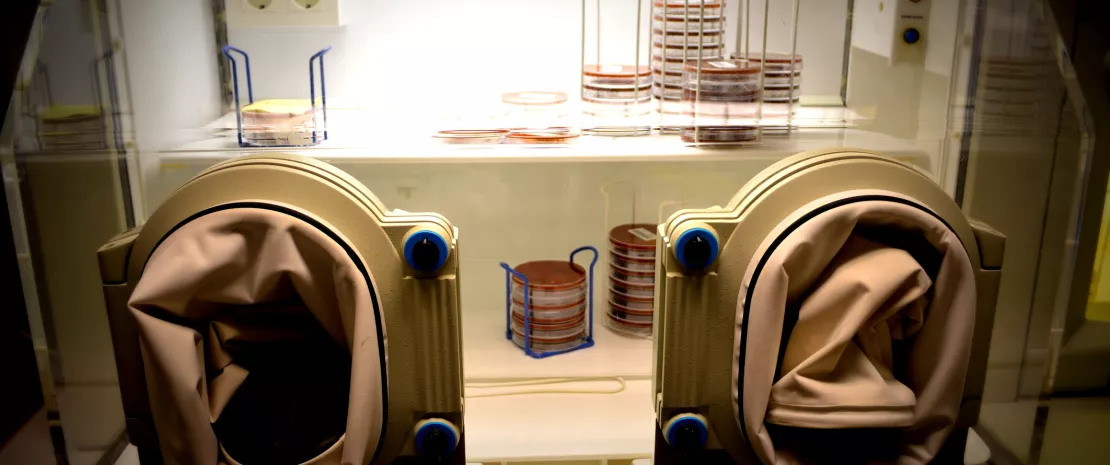Ulcerative colitis: an innovative fecal transplant protocol
Preservation of anaerobic microorganisms in fecal transplants could lead to a less intensive but just as efficient treatment as standard methods in patients with ulcerative colitis.
Lay public section
Find here your dedicated section
Sources
This article is based on scientific information

About this article
While the involvement of the gut microbiota in chronic inflammatory bowel diseases (Crohn’s and ulcerative colitis) has been proven, the fecal microbiota transplant (FMT) is still being investigated. There seems to be a significant donor effect: the more diversified the transplanted microbiota, the better are the results. In this context, Australian researchers developed an innovative technique.
Preserved anaerobic microorganisms, streamlined protocol
Scientists hypothesized that anaerobic microorganisms could be involved in the therapeutic effect of fecal transplants for the treatment of UC. They thus developed a preparation technique that preserves these species which are largely destroyed by standard methods performed in the presence of oxygen. Their administration protocol was less intensive than those previously used: one dose (from a mix of several donors) received by colonoscopy followed by two doses administered through enemas in a 7‑day period, compared to one colonoscopy and five enemas per week during 8 weeks in the (sidenote: Paramsothy et al., Multidonor intensive faecal microbiota transplantation for active ulcerative colitis: a randomised placebo-controlled trial. Lancet 2017 ) .
Effective protocol on corticosteroid dependency
Seventy-three patients with mild to moderate UC were included in this trial. In addition to their background treatment, participants received prednisolone (doses < 25mg/day). Primary endpoint was complete corticosteroid weaning on Week 8, when a new colonoscopy was performed as well as a clinical examination. In the group receiving FMT from donors (dFMT), remission rate was 32%, compared to 9% in the control group who received autologous FMT (aFMT). Average decrease in overall (sidenote: MAYO score https://www.igibdscores.it/en/info-mayo-full.html ) was 3.5 points in the dFMT group (4 patients attained a Mayo score of 0), vs. 1.2 points in the aFMT group. It should also be noted that the greater abundance of both anaerobic species (Anaerofilum pentosovorans and Bacteroides coprophilus) was strongly associated to an improvement of the disease in the dFMT group. This study confirms the benefits of FMT in the treatment of UC and concludes that an anaerobic preparation method could streamline therapeutic protocol and improve patients’ lives, while maintaining the same efficacy.
Transplantation fécale, Harry Sokol, Association française de FMC en Hépato-gastro-entérologie






